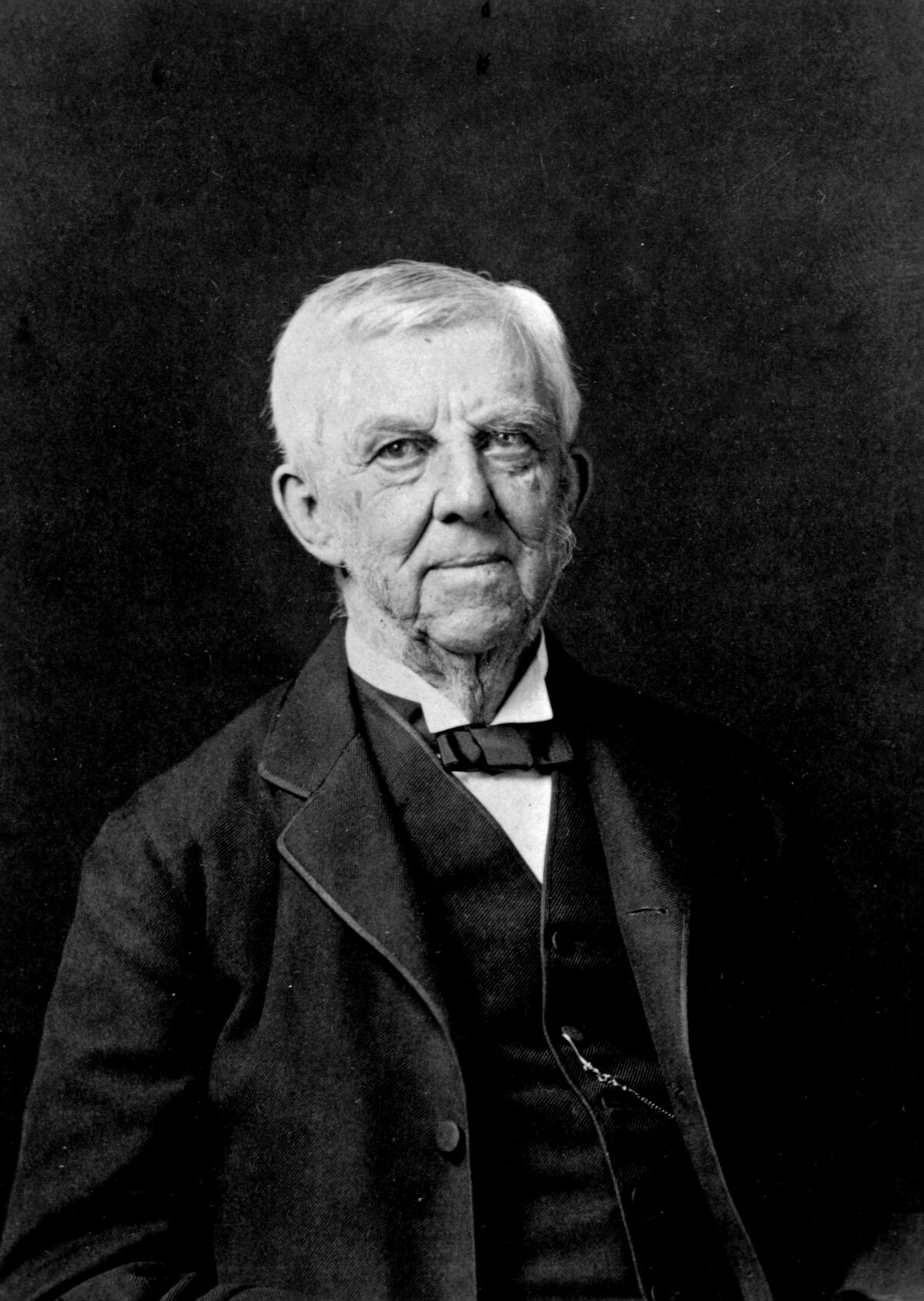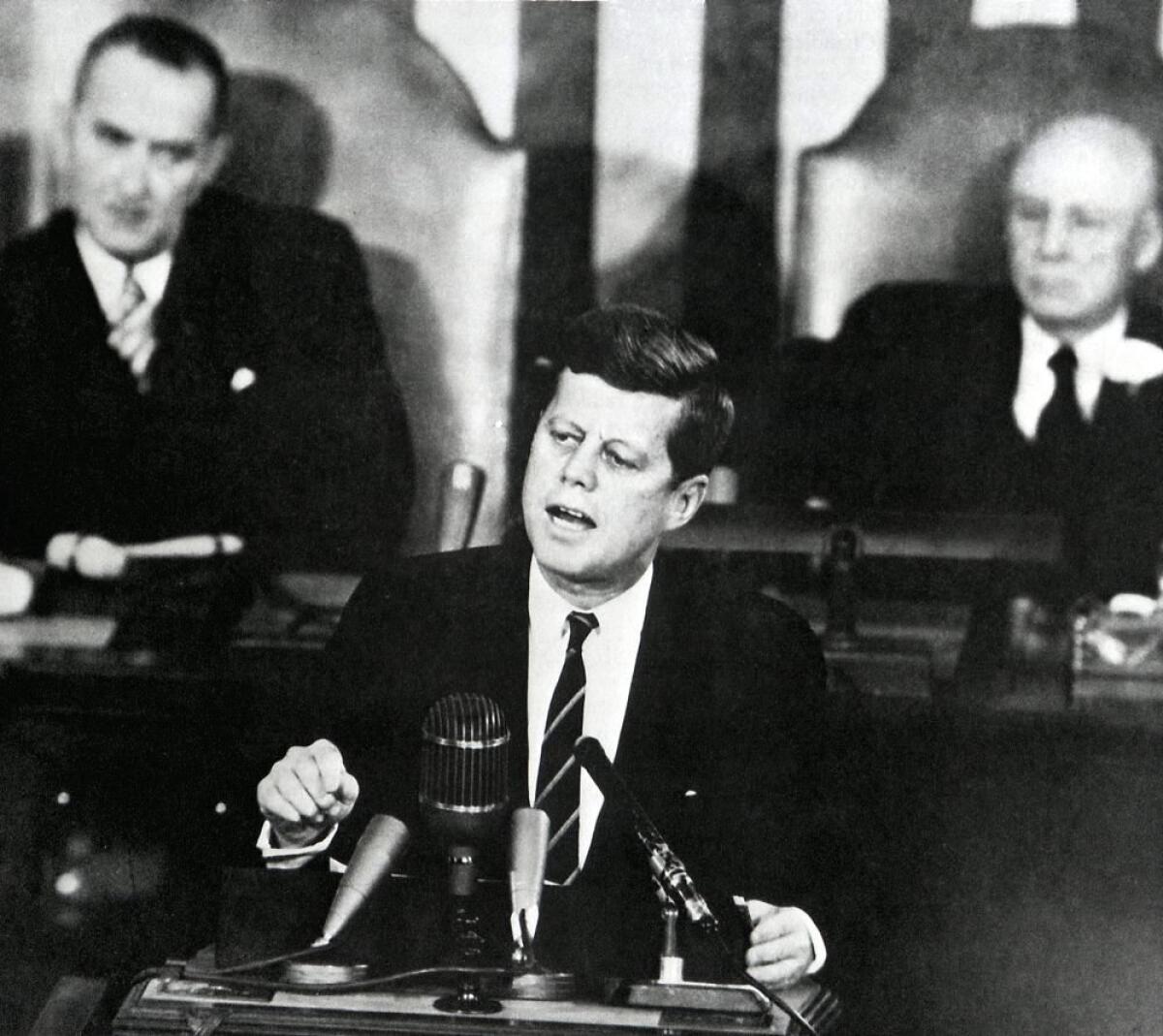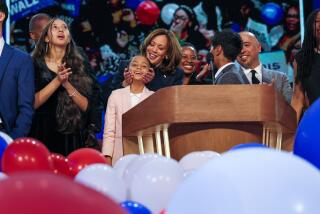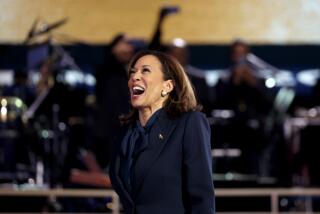The July 4 speeches that helped define what America is â or what it should be
Generations ago, Americaâs leading political figures delivered many of their most eloquent orations not in the chambers of the Capitol but from local gazebos and bandstands on Independence Day. Before large crowds on town greens or in front of fire halls, they would harken back to the lessons of the nationâs Founders, often holding their audiences spellbound for an hour, perhaps even more.
American presidents still deliver pro-forma July Fourth messages; last year President Trump, in a remarkable personal version of history and the capabilities of George Washingtonâs Revolutionary War forces, said that âour Army manned the air, it rammed the ramparts, it took over the airports.â
But the grand tradition of the Independence Day oration has largely disappeared. Todayâs audiences are unaccustomed to the patriotic rhetoric that once commanded attention. Indeed, the standard themes of July Fourths past â paeans to the wisdom of Washington, suggestions that his Revolutionary comrades were soldiers in Godâs own cause â now possess an antiquarian, almost alien air.
âA politicianâs Fourth of July speech may seem anodyne and clichĂŠd,â said Rutgers historian David Greenberg. âBut it also contributes in some way to understanding and perhaps subtly redefining, in that moment and from that political perspective, what Americanism is or should be.â
And there are lessons in these orations of a long-ago age. They are period pieces, and yet they underline in the 21st century how the 18th century Enlightenment values embedded in the Declaration of Independence have not been redeemed or realized.
âIf democracy is Americaâs civic religion, then its sacred text is the Declaration of Independence,â said Martin Kaplan, a USC expert on media and society. âWhat better occasion for a secular sermon about our founding values than the anniversary of our birth certificate? The first time many Americans heard their unalienable rights proclaimed was with their own ears, listening to its text. In a way, every Fourth of July speech since then has been a reenactment of that first declaration, renewed and recommitted in the terms of its changing times.â
So as the 244th celebration of American Independence draws near, let us pause and draw inspiration, and perhaps wisdom, from this holiday sampler of Fourth of July addresses of the past:
Daniel Webster, July 4, 1800
âIt becomes us, on whom the defence of our country will ere long devolve, this day, most seriously to reflect on the duties incumbent upon us. Our ancestors bravely snatched expiring liberty from the grasp of Britain, whose touch is poison... Shall we, their descendants, now basely disgrace our lineage, and pusillanimously disclaim the legacy bequeathed to us? Shall we pronounce the sad valediction to freedom, and immolate liberty on the altars our fathers have raised to her?â
Of all the remarkable elements of Websterâs life, what might be most remarkable was that the citizens of Hanover, N.H., invited him as a Dartmouth junior to deliver a speech at the tiny college townâs Independence Day commemoration. At age 18, Webster consciously looked to the past (by invoking the greatness of Washington, who had died earlier that year) and eerily foreshadowed the future (by providing a direct antecedent to the message John F. Kennedy would offer when he bid Americans to âask what you can do for your countryâ).
These words also remind us that these moral principles are at the heart of the American creed, a theme that John Quincy Adams would return to on July 4, 1821, when he spoke of how the American Revolution âswept away all the rubbish of accumulated centuries of servitudeâ and âproved that the social compact was no figment of the imagination, but a real, solid, and sacred bond of the social union.â
~~~
Charles Sumner, July 4, 1845
âNothing resembles God more than that man among us who has arrived at the highest degree of justice. The true greatness of nations is in those qualities which constitute the greatness of the individual. It is not to be found in extent of territory, nor in vastness of population, nor in wealth; not in fortifications, or armies, or navies; not in the phosphorescent glare of fields of battle; not in Golgothas, though covered by monuments that kiss the clouds; for all these are the creatures and representatives of those qualities of our nature, which are unlike any thing in Godâs nature.â
These remarks by Sumner, who would become known as one of the Senateâs most ardent opponents of slavery, are part of a larger speech delivered six months before Texas joined the Union. In summoning an image of Golgotha, the Jerusalem hillside where Christ was crucified, and in decrying the prospect of war with Mexico, Sumner offered a vivid celebration of the concept of justice. This is a meditation on eternal truths that we might embrace in our own time, when the killings of men in Minneapolis and Atlanta remind us that we have not yet arrived at âthe highest degree of justice.â
~~~
Frederick Douglass, July 5, 1852
âThe blessings in which you, this day, rejoice, are not enjoyed in common. The rich inheritance of justice, liberty, prosperity and independence, bequeathed by your fathers, is shared by you, not by me. The sunlight that brought light and healing to you, has brought stripes and death to me. This Fourth July is yours, not mine. You may rejoice, I must mourn...â
Speaking in Rochester, N.Y., the Black abolitionist and statesman opened by asserting that he was ânot wanting in respect for the fathers of this republic.â Douglass, perhaps the greatest orator in our history, escaped slavery and in in his freedom spoke across the country, assuring that Americans could not escape the moral questions inherent in human bondage nor the hypocrisy of Americansâ rhetoric about human freedom.
In this speech he went on to ask the preeminent question of the age, and of ours: âAre the great principles of political freedom and of natural justice, embodied in that Declaration of Independence, extended to us?â
Douglassâ speech came on July 5, not the Fourth, because he refused to celebrate American independence on the usual day until the enslaved were free. July 5 was not without meaning; on that date in 1827, 4,000 Blacks people had marched through New York to mark the end of slavery in that state.
~~~
Edward Everett, July 4, 1861
âWe contend for the great inheritance of constitutional freedom transmitted from our revolutionary fathers. We engage in the struggle forced upon us, with sorrow, as by our misguided brethren, but with high heart and faithâŚ.â
Few Americans ever assembled a resume quite like that of Everett, who served as governor of Massachusetts, member of both the U.S. House and Senate, secretary of State â and president of Harvard University. But he is remembered most for a speech he delivered whose content, ironically, is not remembered at all â a two-hour stemwinder with allusions to classical antiquity, references to the War of the Roses and quotes from the philosopher David Hume that turned out to be merely the warm-up act to the two minutes of what is now known as Abraham Lincolnâs Gettysburg Address.
Everett possessed a voice that was, in the words of his protege, Ralph Waldo Emerson, âmost mellow and beautiful, and correct of all the instruments of the time.â In the speech excerpted above, delivered in the early months of the Civil War, he spoke of the primacy of freedom in the Constitution and, by employing the powerful verb âcontend,â he underlined the enduring struggle that has animated all of our history â and our own time: the debate over the nature, and the extent, of freedom in the nation.
~~~
Oliver Wendell Holmes, July 4, 1863
âIt is easy to understand the bitterness which is often shown toward reformers. They are never general favorites. They are apt to interfere with vested rights and time honored interests. They often wear an unlovely, and forbidding, aspect.â

Physician and poet, Holmes was both one of the leading literary figures of a period with a surfeit of cultural giants and the father of the famous Supreme Court justice (1902-1932) who bore his name.
These remarks came as Union troops were surging to victory at Gettysburg in Pennsylvania and Vicksburg in Mississippi, and they anticipated a period when the country, rent by the Civil War, would need to be reconstituted on a new, reformed basis â in essence the ânew birth of freedomâ that Lincoln spoke of in his Gettysburg Address and that we seek in this hard year of contention and conflict.
~~~
Susan B. Anthony, July 4, 1876
âOur faith is firm and unwavering in the broad principles of human rights proclaimed in 1776, not only as abstract truths, but as the corner stones of a republic. Yet we cannot forget, even in this glad hour, that while all men of every race, and clime, and condition, have been invested with the full rights of citizenship under our hospitable flag, all women still suffer the degradation of disfranchisement.â
The official celebration of the centenary of the Declaration of Independence in Philadelphia included no remarks by women. But a group of determined feminists distributed a Declaration of Rights for Women to the crowd assembled outside Independence Hall and then, at a stand erected for a group of musicians, Anthony read that document aloud.
âIt is with sorrow we strike the one discordant noteââ at the anniversary commemoration, she said, but went on to assert, âThe history of our country the past hundred years has been a series of assumptions and usurpations of power of woman, in direct opposition to the principles of just government...ââ
With Elizabeth Cady Stanton, Anthony founded the National American Woman Suffrage Assn. It took 44 more years for the passage of the 19th Amendment, guaranteeing all women the right to vote â a measure known as the âSusan B. Anthony Amendmentâ â and a century and a half later there remains a pay gap between men and women in the workplace and a representation gap in Congress. Anthony, an important ally of Douglass in the abolitionist movement, became the first woman portrayed on an American coin.
~~~
Charles Francis Adams, July 4, 1876
âLet us labor continually to keep the advance in civilization as it becomes us to do after the struggles of the past, so that the rights to life and liberty and the pursuit of happiness, which we have honorably secured, may be firmly entailed upon the ever enlarging generations of mankind.â
The son and grandson of presidents, Adams was a state senator, a congressman, twice an unsuccessful vice presidential candidate, and the American ambassador to London. In this excerpt, delivered pointedly on the 100th anniversary of the Declaration of Independence, he speaks of the fragility of liberty and the threat that it might not be extended to all in the future. This sentence is a vow that any contemporary American political figure could, and perhaps should, quote in a speech this Independence Day.
~~~
John F. Kennedy, July 4, 1946
âOur idealism, [a fundamental] element of the American character, is being severely tested. Now, only time will tell whether this element of the American character will be true to its historic tradition.â

In an evocative setting where Daniel Webster thundered about the Union and Frederick Douglass lectured about the evils of slavery, a first-time congressional candidate delivered a thoughtful analysis of what it means to be an American. In Bostonâs Faneuil Hall, the meeting place for colonial rebels built by a slave trader and slave owner, Kennedy examined several elements of the American creed.
âJFKâs speech couldnât be more timely,â said Robert Dallek, a prominent historian and Kennedy biographer. âWith a current president, whose character defects cast a shadow across the presidency and the nationâs reputation for human decency, Kennedyâs speech reminds us that the country is better than what Donald Trump represents.â
Yet the Kennedy speech is more than an answer to the Trump presidency. As president he would weaponize the rhetoric of idealism, but as a recent war veteran and fledgling politician he set forth the ultimate American challenge, as fresh on the Fourth of July in 1946 as it would be three-quarters of a century later: for the United States to be true to its historic traditions.
More to Read
Sign up for Essential California
The most important California stories and recommendations in your inbox every morning.
You may occasionally receive promotional content from the Los Angeles Times.










